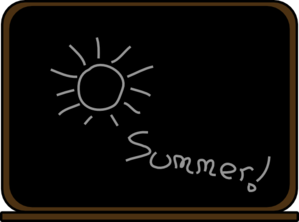Maybe as a school leader I should encourage my teachers to write to some of the teachers who impacted them. Because our teachers should know how they affect lives well into the future. Teachers need to know that that what they are doing is adding value to individuals (character, education, faith etc.)
But I'm not convinced that is enough -- a letter every few years at best. Neither is Researcher John Hattie. He says that the greatest responsibility of a teacher is to become "evaluators of your effect." In other words how are your actions as a teacher contributing to student learning.
In "Visible Learning For Teachers" he lays it out in more detail.
The messages in Visible Learning are not another recipe for success, another quest for certainty, another unmasking of truth. There is no recipe, no professional development set of worksheets, no new teaching method, and no band-aid remedy. It is a way of thinking: 'My role, as teacher, is to evaluate the effect I have on my students.' It is to 'know thy impact', it is to understand this impact, and it is to act on this knowing and understanding. This requires that teachers gather defensible and dependable evidence from many sources, and hold collaborative discussions with colleagues and students about this evidence, thus making the effect of their teaching visible to themselves and to others.In some jobs you know your impact right away at least part of the time. But teaching is different, at least it has been. Just 15 years ago as I completed my college teaching degree we rarely talking in meaningful ways about assessment, much less knowing exactly how my actions as a new teacher affected the results children are having. In fact I was mostly told that it was just "the way it was," when some of my children struggled.
However over that time we have gained a considerable research base on a teacher's effect on student learning. As Hattie points out it is the "biggest effect of which we have control."
If Hattie is correct what actions do school leaders take to give teachers the needed support to make the shift, without driving them into accountability overload?
My first thoughts.
- Talk about results in a less-threatening way. While some adults love pressure, many do not, especially if they are unsure how to succeed. So while student results is always our focus, it is expected that each of us will have areas of strength and areas where we can learn from our colleagues. A focus on results is collaborative not punitive.
- Create a system of risk-taking. Balance "proven" methods with encouraging teachers to try things out. If a particular instructional strategy doesn't seem to work, then let's learn something from it. If you can get teachers to take risks results become a part of the learning process.
- Discuss results in the broad sense too. Test scores matter. I just don't believe they're something to be taken lightly. However many "things" can be measured and should be. For instance student attitudes towards the teacher's actions are highly predictive of a classroom where learning is occurring. A survey shows results in classroom culture. All your priorities should be measured.
Your Thoughts?

